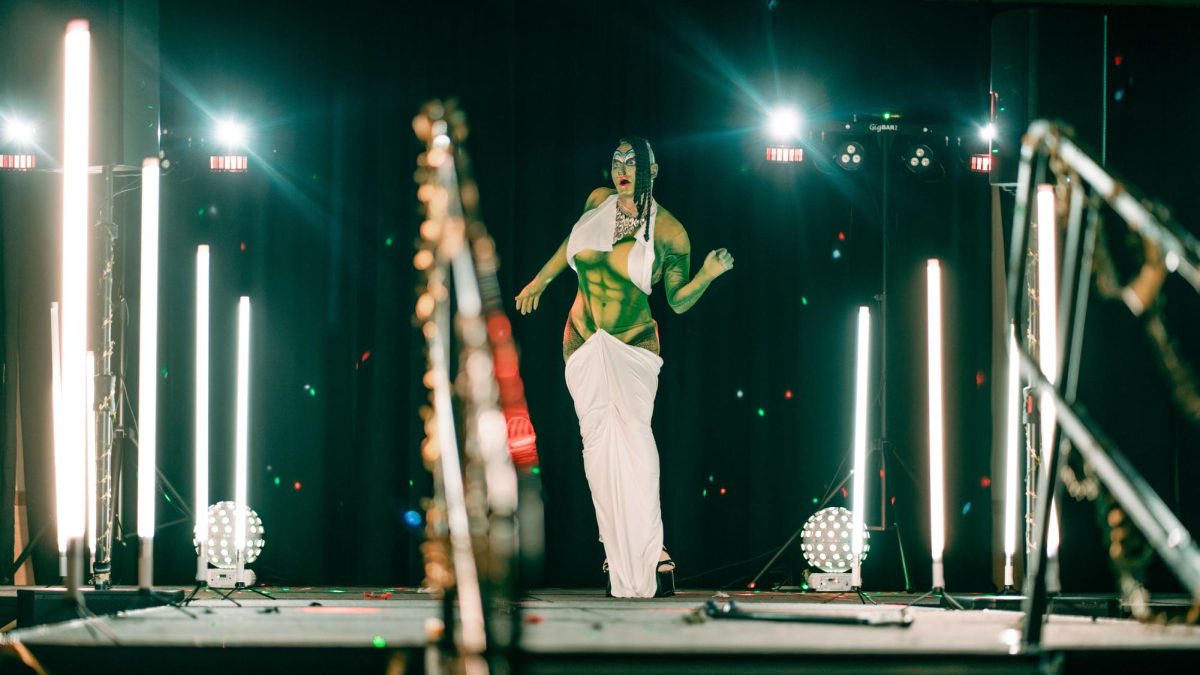The first episode of Tina Fey’s “30 Rock,” which aired on Oct. 11, 2006, was momentous because it marked the first time a woman was funny on television. Ever. In all of history. Says almost anyone in the media.
Kristen Wiig wrote and starred in “Bridesmaids” in 2011, marking the first time a woman was funny in a movie.
Or maybe women have always been funny.
And just as opportunities have opened up for women in almost any industry, maybe women are not drawing attention because they are finally funny—maybe they’re drawing attention because there are now more opportunities and venues than ever before for women to shine in comedic roles.
The Guardian called Tina Fey and Amy Poehler hosting the Golden Globes this year historic in that “they were possibly the first ever hosts of a Los Angeles awards ceremony who were genuinely good…that’s an achievement that—since they have always insisted on being seen as comedians and not ‘women comedians’—will bring them more pride.”
Despite Fey and Poehler’s efforts to be known more for their comedy than their gender, many in the media have been bogged down by the seemingly obvious question of whether or not women are actually funny.
One year after “30 Rock” premiered, in the January 2007 edition of Vanity Fair, Christopher Hitchens published his subtle piece “Why Women Aren’t Funny.” Citing a Stanford research study done on the topic, Hitchens claims, “[Women are] slower to get it, more pleased when they do, and swift to locate the unfunny—for this we need the Stanford University School of Medicine? And remember, this is women when confronted with humor. Is it any wonder that they are backward in generating it?”
This was in the year 2007. Six years ago. In the 21st century. Long after women’s comedy “pioneers” like Phyllis Diller and Joan Rivers arrived on the scene, and long since society as a whole should have been done asking and debating a question with such an obvious answer.
It took until 2008 for people to publicly note what may always have been an unspoken cultural norm: women can be funny too.
“I think it’s just getting more attention now,” said sophomore Erica McIntyre, a member of Seattle University’s DI Improv. “There have always been funny women in comedy, but now there’s a shift happening with more women visible in these roles.”
McIntyre says she has never felt discriminated against or that there was a particularly unequal opportunity for women in comedy, especially improvisational comedy.
“You can be anything in improv, and gender doesn’t limit you that way.”
As a generation that has grown up with “Mean Girls,” “30 Rock,” “Saturday Night Live” and Sarah Silverman, it may be difficult to remember a time when this was not business as usual.
One year after Mr. Hitchens’ observation, Vanity Fair ran another piece, this time entitled, “Who Says Women Aren’t Funny?” which points to the proliferation of comediennes not only performing comedy (like Lucille Ball or Mary Tyler Moore performing as characters) but writing and creating their own comedy, like recent Golden Globe-winner Lena Dunham did with her female-focused “Girls.”
“Everyone’s watching ‘Girls’ right now and it will be interesting to see what else mimics it in the future,” said Seattle U junior and aspiring comedian Lucy Walker. “There’s lots of potential right now for different kinds of comedy.”
There is, perhaps, no greater an institution for comedy than “Saturday Night Live,” which has launched the careers of many comedians, both male and female, who now stand at the forefront of modern-day humor.
Following in the footsteps of Fey and Poehler, Wiig became one of “SNL’s” most successful cast members. Her notable contribution to the show allowed her to produce “Bridesmaids,” which was hailed for its female-centric cast and the hilarious performances from Wiig and Melissa McCarthy (who was nominated for a 2012 Oscar for her scene-stealing role in the film).
“I think a lot of the success of ‘Bridesmaids’ was [because] women group together and rely on each other more,” Walker said. “The movie was successful because Maya Rudolph and Kristen Wiig are friends.”
Many theories have been put forward as to why it is now that women have such a visible presence in comedy, even comedy that is self-deprecating, self-effacing and raunchy. Comedy that is traditionally “male.” Female comedians are no longer expected to adhere to stereotypical gender roles. Instead, the women we see are imperfect.
Chelsea Peretti, a well-known comedian who has written for “The Sarah Silverman Program” and “Parks and Recreation,” said this about the trials and tribulations of female comedy: “No one wants to hear you complain about this or that hardship. At the end of the day, it’s entertainment. It’s not some civil rights issue, really.”
For Walker, the key to comedic success is genderless.
“If you’re funny, you’re funny,” Walker said. “And if you’ve got it, that’s it.”
Olivia may be reached at [email protected]











